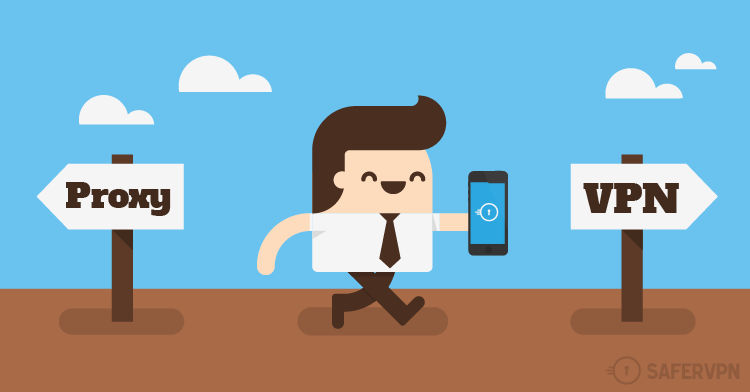VPN vs Proxy: Which is the Better Choice ?
Heidi Finigan | Last Updated:
VPN Streaming Expert

If you’re looking for a way to browse the internet anonymously, you may have considered using either a proxy server or paid VPN service to hide your identity and protect your browsing history. While both of these options accomplish the same goal, they are quite different in how they go about doing it, and there are advantages and disadvantages to each. Continue reading for the differences between VPNs and proxies, and discover which one is the better option for you.
What is a Proxy Server?
A proxy server is a “go-between” service that puts itself in the middle between you and your browsing destination. When you try to go to Google.com, your PC will make a connection to the proxy server and tell it that you want to go to Google. The proxy will then go to Google itself and relay the information back to your PC. All information between you and your destination passes through the proxy.
Benefits of a Proxy
Since the proxy is a “middle-man” in your communication with other websites, your identity is hidden because all of the requests look like they’re coming from the proxy, not from you. This allows you to browse anonymously for the most part, though your identity is still known to the proxy itself.
Disadvantages of a Proxy
The speed of your connection to other websites is entirely dependent on the speed of the proxy you’re using. If you’re using a service that is slow or overloaded, you’ll have to wait for your request to be processed. Additionally, there is a risk of nefarious parties operating proxy services – since it costs almost nothing to start one up, it’s easy for hackers to spin up a service which secretly steals your information. Also, proxies offer zero built-in encryption of any kind, making it easy for attackers to monitor your browsing data if they eavesdrop on your connection.
What is a VPN?
A VPN (virtual private network) is a hidden “tunnel” between you and your destination, where your information is protected from eavesdroppers by strong encryption. Similar to proxies, a VPN establishes a connection between you and the VPN provider, and your browsing requests are then handled by the VPN service instead of being sent directly from your PC.
Benefits of a VPN
Unlike proxies, a VPN encrypts your information as it passes back and forth from your PC to various websites. This means that, even if an attacker were trying to monitor your browsing, the data would be completely unreadable. A VPN also protects your identity because your browsing requests are sent by the VPN service, not your PC. A reputable, paid VPN is also much faster than a proxy service, allowing you to browse at normal speeds while protecting your identity.
Disadvantages of a VPN
A VPN may suffer from slower speeds if you’re using a service that is hosted in another part of the world from you. For this reason, many VPN providers will offer servers in different geographic areas to reduce latency. If your VPN provider offers this option, be sure to select a server that is close to you to ensure optimal speeds.
CONCLUSION: VPN is the Better Option
While a proxy may be suitable for users who don’t require full anonymity, VPNs are designed for the user who needs total privacy and protection of their information. Secure encryption protects your data even if you’re being actively monitored, you’ll enjoy faster speeds, and your identity will be completely hidden from websites that may try to discover who you are.
When choosing a VPN provider, always opt for a paid service instead of a free one. After all, every VPN business has to make money somehow, and if you’re not paying a subscription fee, there is a possibility that the provider may be selling your data to advertisers to recover their operating costs.
If you’ve been wondering about the VPN vs Proxy question, it’s easy to see that, while both serve the same purpose, a VPN is the better choice.
PRIVACY ALERT: Websites you visit can see your current IP Address:
- Your IP Address: 3.138.122.195
- Your Location: Dublin, US
- Your Internet Provider: Amazon.com, Inc.
* Scammers, Governments, and Advertisers can use this information to track and target you.
Our recommended vpn service provider for general all-round internet security and online privacy is ExpressVPN. It offers an excellent selection of online security and internet privacy features, excellent speed, and the ability to unblock your favorite streaming services (Netflix, Hulu, Amazon Prime, BBC iPlayer).
Visit ExpresssVPNCategories: Guides

